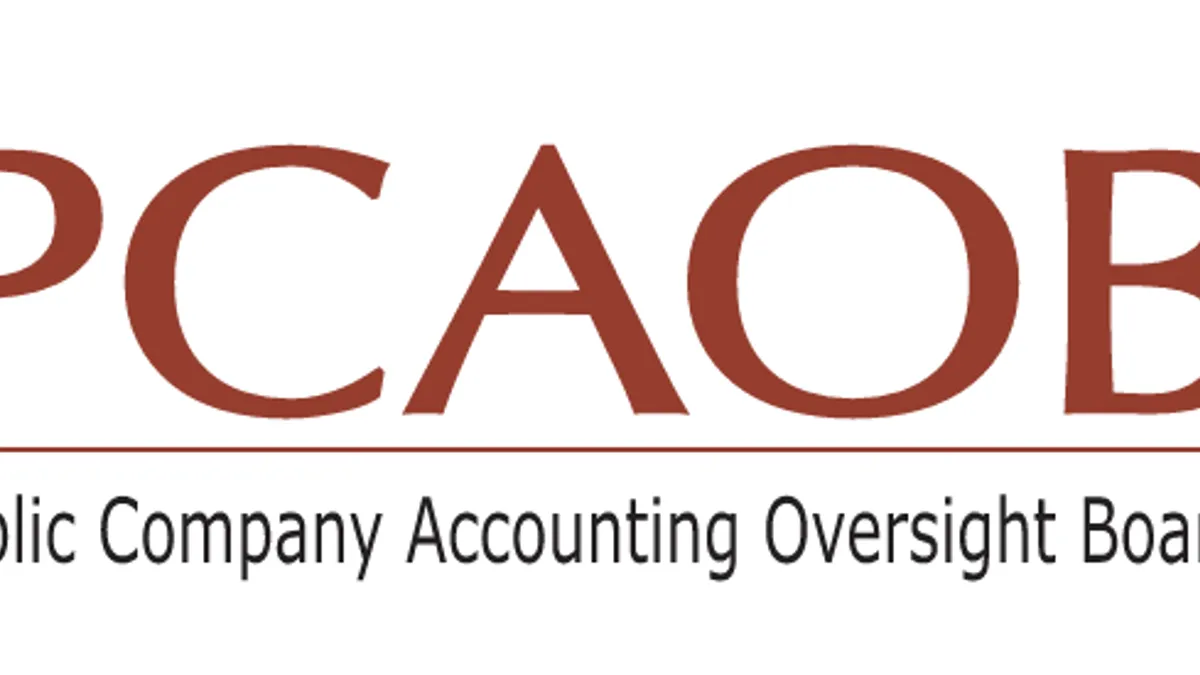Public Company Accounting Oversight Board (PCAOB) Chairman William Duhnke told the Council of Institutional Investors spring meeting this week in Washington he is working to have the regulator proactive.
"We’re focusing on preventative measures. We want to get in before mistakes are made," said the leader.
PCAOB was created in 2002 in response to auditing failures that led to the collapse of several high profile publicly traded companies, including Enron and WorldCom, that used accounting measures that have since come under scrutiny.
He told the audience largely of pension fund executives and advisers there is no evidence auditor tenure or auditor rotation would be an advantage in ensuring audit independence. He noted that smaller firms don’t have the size or expertise to conduct big audits, which would make limits on tenure, or a rotation requirement, hard to carry out.
Duhnke said PCAOB won’t have a role in mandating any kind of recognition of environmental, social, and governance (ESG) values until such values are built into the formal financial process.
He added the agency remains hindered by the years-long refusal of China to let it have access for inspections. Many U.S. companies have units in China, and PCAOB has been trying to do records exams there, like the agency does in other countries in which American firms operate, but the Chinese authorities have refused.
Duhnke wouldn’t say if he was for or against a proposal in this year’s proposed federal budget to make PCAOB a unit of the Securities and Exchange Commission (SEC). The Administration has said a merger would create efficiencies, since the SEC already has the authority to review audits and take enforcement actions.
Duhnke, formerly general counsel and staff director of the Senate Banking Committee, noted Congressional approval will be needed to bring about the change.
He predicted it would be a "long road" to make it happen, if it ever does.
Looking forward, Duhnke said it is important for PCAOB to be in contact with audit committees and others the regulator had never been in contact with before.
In remarks he made to the SEC at the end of last year, he said his goal was for the regulator to speak to the audit committee chair on every inspection the agency conducted, or nearly 400. "We significantly increased our interaction with audit committees during the inspection process," he said in those earlier remarks.
SEC changes
During the meeting, former SEC chair Elisse Walter, who was also in attendance, asserted the agency doesn’t have sufficient staff to develop detailed climate risk disclosure requirements.
General principles-based guidelines are doable by the commission, said Walter, but specifics would probably take too long.
In the absence of rules and guidance, she said, the private sector is taking the lead. Almost 80% of S&P 500 companies are issuing voluntary sustainability reports.
Noting they vary in their accuracy and what they contain, Walter said, what you really want is reliable and comparable.
"A private sector solution can work," said Walter, who has served as a member of the Sustainability Accounting Standards Board.
She said it is important for companies to realize responding to climate change can present opportunities as well as risks.
Presenting a case in point, she pointed to Occidental Petroleum, which has a unit doing carbon capture. (Walter is on Occidental’s board.)
Walter called climate change the first issue among equals impacting companies for the long term.











